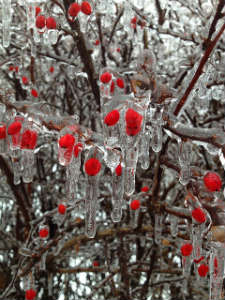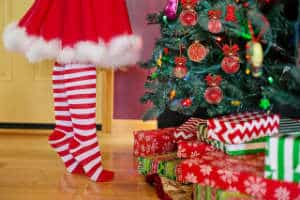It Will Be A Blue Christmas If You Slip and Fall

Snow and ice are outdoor weather conditions that cause people to trip and fall. Other indoor workplace changes that may pose equal risks, which many businesses should avoid include poor lighting, torn carpet, slippery floors, and narrow stairs among others.
Factors that Cause Rampant Slips and Falls During Winter Season
Many studies have discovered that work-related injuries due to slips aren’t entirely because of trivial circumstances. They are caused by myriad complex risk factors. Subsequently, other system models attempting to explain the factors that cause slips, trips and falls in the U.S have emerged. These risk factors include:
- Extrinsic (Environmental) – Physical factors including slippery and slopping icy ground surfaces, poor lighting and inaccessibility.
- Intrinsic (Individual factors) – These include both human gait and safety responsibilities.
- Mixed Factors – Mixed factors combines equipment and street maintenance, footwear-surface interaction. In this article, we focus on the extrinsic factors and relevant aspects of the mixed factors.
In Philadelphia and the U.S as a whole, winter conditions reach extreme levels. Elements such as temperature, low visibility, and snowfall highly influence the level of danger a pavement of sloping ground can pose. Additionally, it is discovered that the main culprit of slips and falls is a slippery surface/ low friction ground. During winter, the surface can be covered in thawing ice/snow, ice-covered snow, and compressed snow. Therefore, the level of risk you stand when treading on such surfaces depend mainly on the temperature, thickness, toughness, and structure of the ground cover.
Great Ways of Avoiding Winter Slips and Falls
In any case, businesses must ensure they avoid cases of slips and falls around the premises as a plaintiff (tripped individual) can issue a “Property Liability” claim, which is financially strangling to any organization.
The Philadelphia state Premises Liability statutes tacitly mandate businesses and property owners to exercise due care to maintain safe conditions. Thus, the property owners should take all the responsibilities of determining risks and warning clients and guests of a potentially dangerous icy grounds that they are or should’ve been aware of.
It is essential to diligently remove snow and ice from building entrances, parking lots, walkways, and pavement. To avoid injuries caused by trips and falls, ensure you:
- Choose the right footwear. Hardly is there a universal shoe sole that can maintain traction in all weather conditions. When walking on snow, rubber and neoprene shoe soles offer high friction with the icy surface.
- Thin deeply on the best route to take to your preferred destination and add a little extra time to figure out the best means possible of getting there. Refrain from rushing, turning to shortcuts with large piles of snow, or areas whose surface haven’t been completely cleared of snow and ice.
- Only walk on a slippery surface if there is no other available alternative. Even so, tread cautiously while bending your upper body slightly forward. Move with short strides to maintain stability.
- A significant number of slip-and-fall cases occur when you enter and exit an automobile. To avoid injuries in such situations, exercise due care when stepping out of the vehicle and always cling to the vehicle support.
- Be cautious when driving around snow removal works. Most of the equipment used usually stop suddenly and may hinder an operator’s visibility.
Additionally, when entering a building, you should ensure you use doormats to remove any moisture from the shoe sole, which lower traction. Avoid stepping on slippery surfaces and alert the maintenance department of any hazards that may cause slips and falls.
Taking safety issues into consideration within a property during this winter season is important for both commercial and residential properties. Christmas is lurking around the corner, and as a property owner, winter-proof the property to avoid experiencing a blue Christmas. Besides, it keeps you away from litigations lawsuits.
